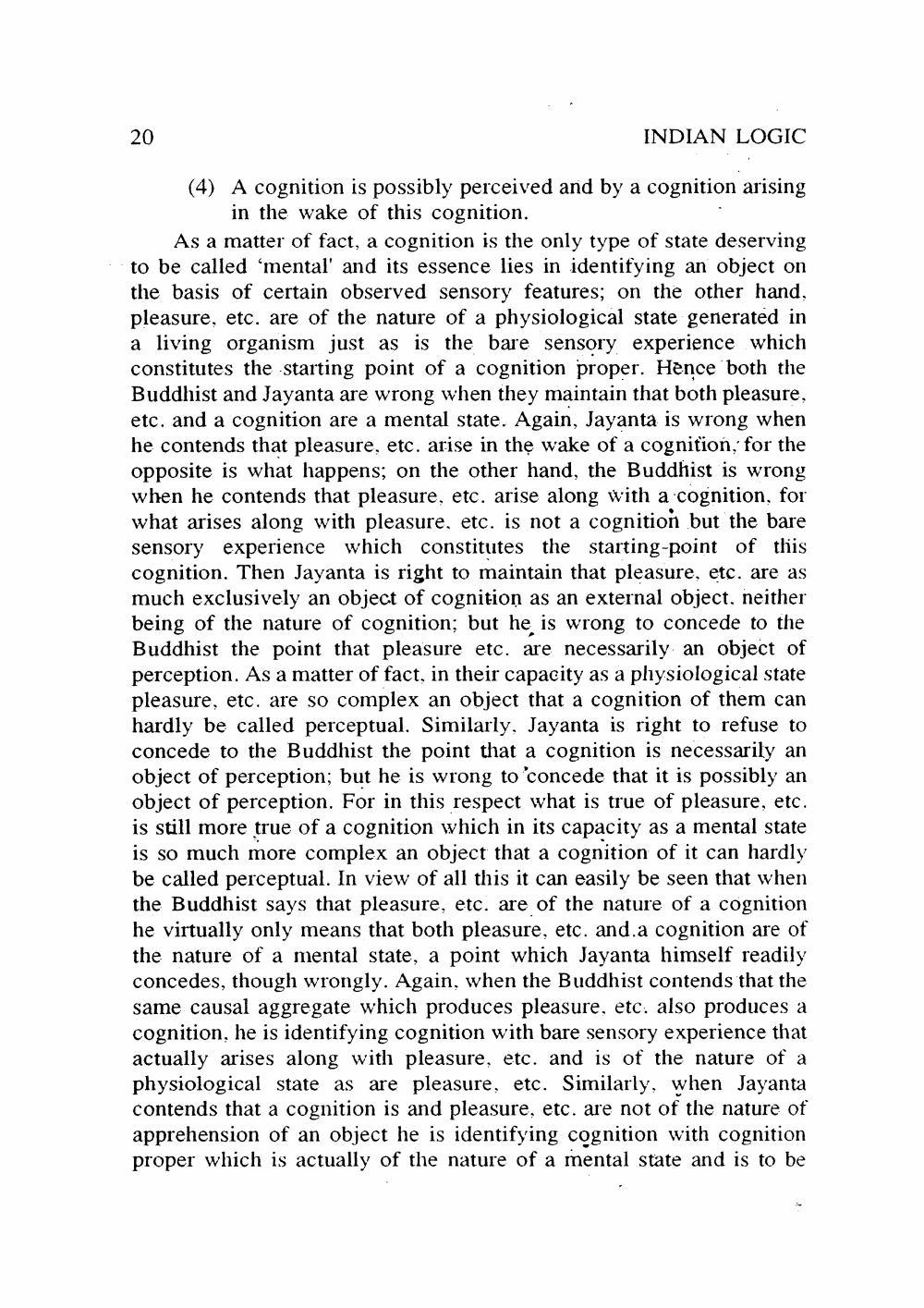________________
20
INDIAN LOGIC
(4) A cognition is possibly perceived and by a cognition arising
in the wake of this cognition. As a matter of fact, a cognition is the only type of state deserving • to be called 'mental' and its essence lies in identifying an object on
the basis of certain observed sensory features; on the other hand, pleasure, etc. are of the nature of a physiological state generated in a living organism just as is the bare sensory experience which constitutes the starting point of a cognition proper. Hence both the Buddhist and Jayanta are wrong when they maintain that both pleasure, etc. and a cognition are a mental state. Again, Jayanta is wrong when he contends that pleasure, etc. arise in the wake of a cognition, for the opposite is what happens; on the other hand, the Buddhist is wrong when he contends that pleasure, etc. arise along with a cognition, for what arises along with pleasure, etc. is not a cognition but the bare sensory experience which constitutes the starting-point of this cognition. Then Jayanta is right to maintain that pleasure, etc. are as much exclusively an object of cognition as an external object, neither being of the nature of cognition; but he is wrong to concede to the Buddhist the point that pleasure etc. are necessarily an object of perception. As a matter of fact, in their capacity as a physiological state pleasure, etc. are so complex an object that a cognition of them can hardly be called perceptual. Similarly, Jayanta is right to refuse to concede to the Buddhist the point that a cognition is necessarily an object of perception; but he is wrong to 'concede that it is possibly an object of perception. For in this respect what is true of pleasure, etc. is still more true of a cognition which in its capacity as a mental state is so much more complex an object that a cognition of it can hardly be called perceptual. In view of all this it can easily be seen that when the Buddhist says that pleasure, etc. are of the nature of a cognition he virtually only means that both pleasure, etc. and.a cognition are of the nature of a mental state, a point which Jayanta himself readily concedes, though wrongly. Again, when the Buddhist contends that the same causal aggregate which produces pleasure, etc: also produces a cognition, he is identifying cognition with bare sensory experience that actually arises along with pleasure, etc. and is of the nature of a physiological state as are pleasure, etc. Similarly, when Jayanta contends that a cognition is and pleasure, etc. are not of the nature of apprehension of an object he is identifying cognition with cognition proper which is actually of the nature of a mental state and is to be




